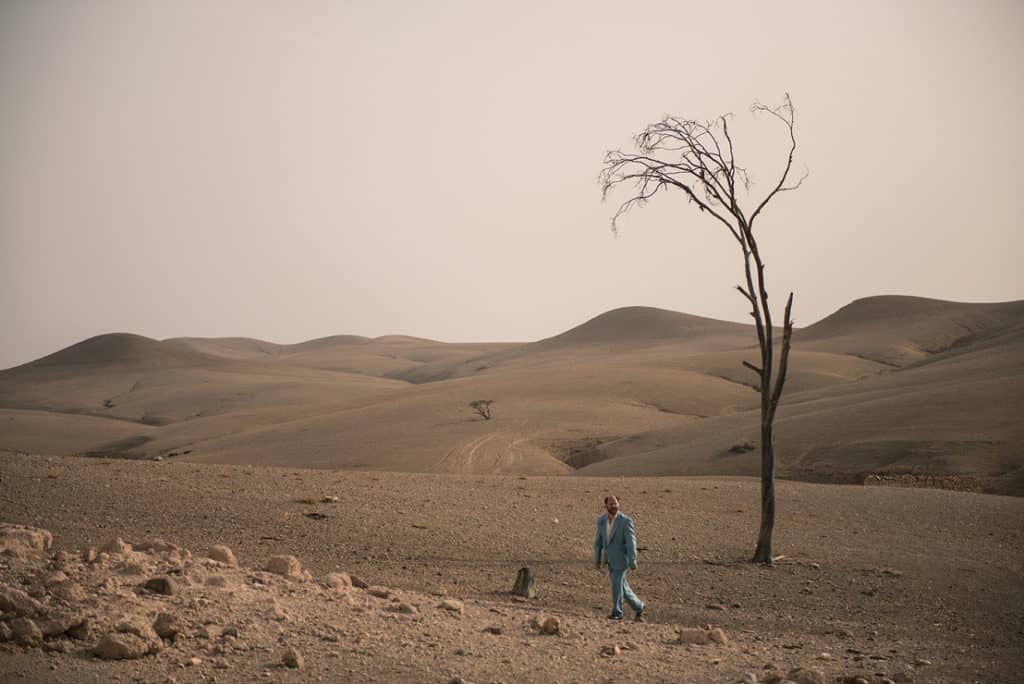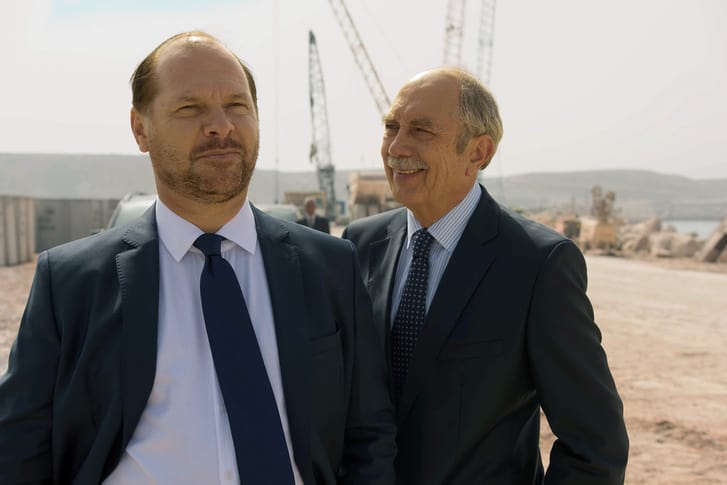Yesterday (Hier, Tegnap 2018) is the first feature by Bálint Kenyeres, hitherto known for his shorts, which won awards at several festivals. Businessman Victor Ganz (Vlad Ivanov) arrives in an unnamed North African town (the film was shot in Morocco) in an attempt to sort out some problems on a building site. Once there, he seems oddly disoriented. In the evening, he goes to a bar he used to frequent. Suddenly he spots a woman he used to be involved with, but when he tries to follow her, she’s gone. Then he is thrown off guard by the subsequent events.
Yesterday begins with a Herman Melville quote, ending with the part, “Let faith oust fact; let fancy oust memory; I look deep down and do believe.” Then we enter darkness, which turns out to be Victor’s car, where he is making a phone call to someone named Gabriel. It turns out that he is on the car deck on a ferry. When the gate opens, light gradually comes into the image. Then, he is exposed to the blinding light outside. After some business-related meetings, he reaches the aforementioned bar. Once there, a man starts quoting Wikipedia about prophecies, which talk about the relationship between past and future events. Meanwhile, the camera moves around.

When Victor starts reminiscing about an orange jukebox in the corner, the man says that he remembers him and claims that he used to sit on a chair in that corner, but the jukebox is long gone. Then Victor sees the woman and gets up. From this description, it could be any serious-minded film that wants to explore memory ad nauseam. Even though it’s easy to make references to films like The Passenger (1975), not least considering the setting, Kenyeres is aiming for something different. The protagonist is constantly angry and frustrated. Though he may not be a character that you connect with, the frustration might be shared by the viewer, as well.
Yesterday or Today, or both?
The director explained his approach to the project. “On Hier, I needed a contrast between the European way of life and this place he comes back to, which is a mere 30 minutes from Europe but might as well be hundreds of years away. It’s a culture shock and a film about contrasts and contradictions. The investigation takes the form of a road movie and introduces different settings. It’s a contemporary film about the past, but one which doesn’t use any flashbacks. We step back into the past through the journey of the main character and also visually to a certain extent. This environment lends itself to visual clichés, but I didn’t want any camels or orange-coloured sand dunes “
It’s a risky path that Kenyeres has chosen. He is amply helped by Ádám Fillenz’s Super 16 lensing, which lends a particular feeling to this noir shot in broad daylight, more or less without shadows to hide in. When I wrote about the film from the Hungarian Film Week, I mentioned that what initially felt derivative of works by Antonioni or Robbe-Grillet progressively turns into something more ambiguous and mysterious. I’m still not sure that I can put into words what it is, but the film is quite an experience. If things are “explained” or at least come together during the last 20 minutes depends on the spectator. It’s definitely a film to experience.
Hier is available on Vimeo, kindly provided by the producer, Andrea Taschler. The password is Tomorrow2023. The film is highly recommended, but I can’t promise that you won’t be frustrated in the process, but that could be part of the journey.

